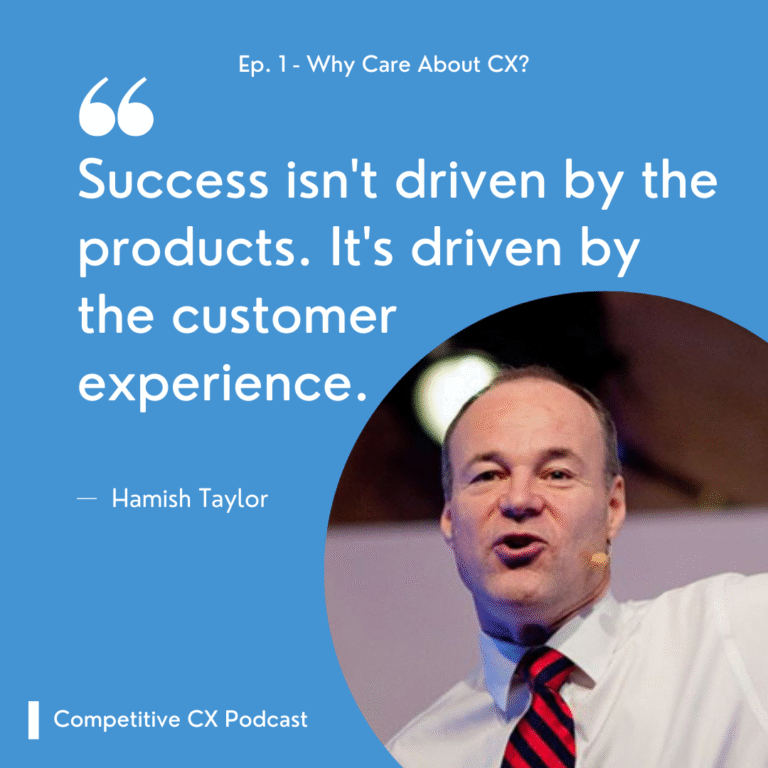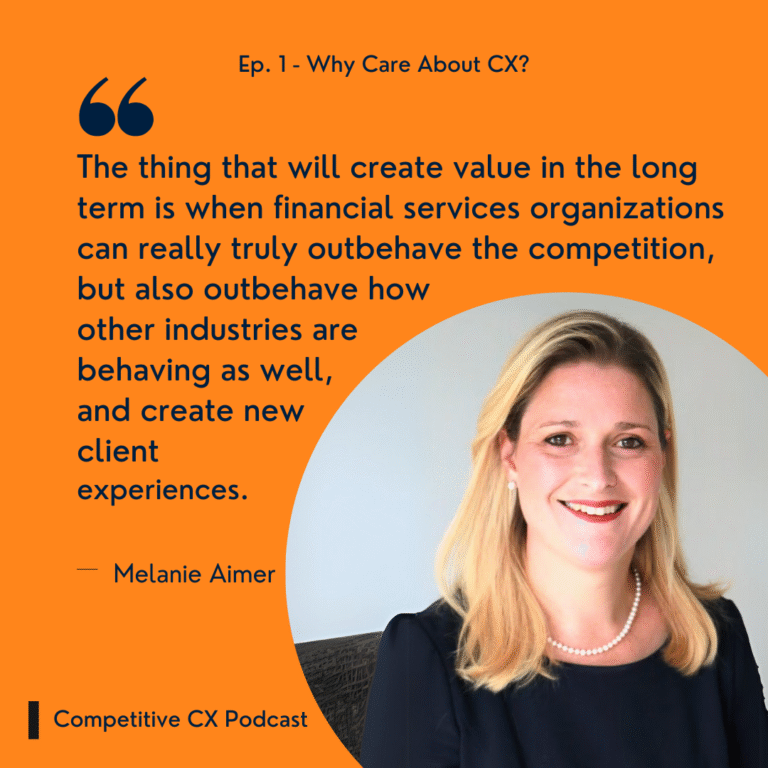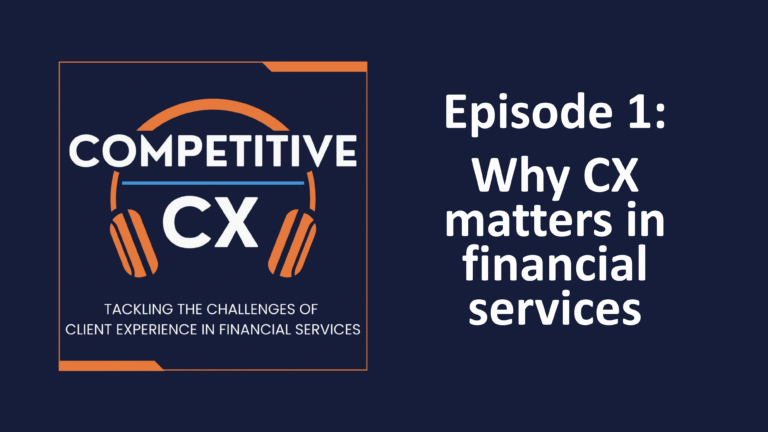In brief
Client experience in financial services is no longer optional – it’s the last sustainable source of competitive advantage. In this episode of Competitive CX, senior leaders explain how shifting expectations, digital disruptors, and emotional engagement are transforming how clients assess value. Discover why client experience in financial services matters now more than ever – and what firms must do to respond.
Why Financial Firms Must Prioritise Client Experience
In the debut episode of the Competitive CX podcast, three senior leaders – Hamish Taylor, Melanie Aimer and Adam Grainger – unpack why client experience in financial services (CX) has become the last defensible source of competitive advantage.
Clients today compare every interaction – not just with rival firms, but with the best experiences in their digital lives. The conversation covers the business risks of underestimating CX, the measurable impact on sales and loyalty, and why emotional connection now matters as much as operational efficiency.
From demographic shifts and rising expectations to the dual role of technology as both disruptor and enabler, this episode sets out a clear case: if CX isn’t already on your boardroom agenda, you’re already behind. Whether you’re in asset management, private banking, or insurance, this is a wake-up call and the importance of CX in finance.
Why client experience in financial services matters – summary podcast discussion
In their discussion Taylor, Aimer, and Grainger describe client experience as a competitive advantage in financial services. Clients now compare interactions against top digital brands – not just competitors – making emotional and frictionless experiences essential.
Taylor warns that traditional risk frameworks ignore CX at their peril, arguing that disengaged clients are the greatest unmeasured risk.
Grainger adds data on the impact of CX on profitability showing engaged firms outperform laggards by 20%+ in conversion rates. Furthermore, he points out that CX is every firm’s reliable source of differentiation because it’s entirely controllable. This makes not prioritising CX an unforced error.
Aimer frames the issue as urgent: demographic shifts, fintech challengers, and financial services client expectations have reset the playing field.
The team highlights that CX is not “soft” – it’s quantifiable and tied directly to outcomes like sales conversion, advocacy, and retention. Leaders must hardwire CX into governance, measurement, and technology. The firms that succeed will balance EQ with digital speed, delivering experiences that not only meet expectations but create lasting emotional impact.



Key Takeaways
- Client experience in financial services is now the key source of competitive advantage – more influential than price or product.
- Neglecting CX is a major strategic risk, often overlooked in financial firms’ risk frameworks.
- Clients benchmark you against Amazon and Apple, not just other asset managers or banks.
- Poor CX drags down sales conversion, with a gap of up to 20% between low and high performers.
- Demographics and technology are reshaping expectations, demanding immediacy, relevance, and empathy.
- CX is not soft – it is measurable, actionable, and tied to financial outcomes.
- Firms that lead with empathy and EQ, powered by smart tech, will win client loyalty and market share.
If you’re an asset manager, check out Accomplish’s client experience services here.
And if you just found this useful, check out our other podcast episodes designed for financial services professionals:
- Why care about CX?
- What is CX and who should own it?
- Cultures that kick CX down the road.
- Organisational structure gets in the way of CX.
- Incentives that inadvertently deprioritise CX.
- Regulator – friend or foe to CX?
- Technology – enabler or disabler for CX?
- Solving the most common CX complaints.
- Where to start with CX?
Listen to the full recordings on Podbean.
Connect with Hamish Taylor, Melanie Aimer and Adam Grainger on LinkedIn and follow Competitive CX for cutting-edge insights on client experience in finance.
Frequently asked questions
1. Why does client experience matter in financial services?
Client experience in financial services is now a core competitive advantage. Clients no longer judge firms just against other banks or asset managers – they compare experiences to top digital brands. A great product or strong compliance record isn’t enough. What wins loyalty is how clients feel at every touchpoint.
2. How does poor client experience impact profitability?
Firms with weak or inconsistent CX can see sales conversion rates drop to 20%, while those with engaging CX average closer to 40%. The financial impact compounds post-sale, as clients who feel neglected are less likely to expand or stay loyal. Simply put, poor CX is a measurable drag on growth.
3. What are the main risks of ignoring client experience?
Most firms assess risk in terms of regulation, performance, or systems – but overlook the risk of disengaged clients. As Hamish Taylor warns, “If you’ve got no customers, you’ve got no business.” CX blind spots can lead to client attrition, reputational damage, and missed commercial opportunities.
4. What’s driving the urgency to improve CX in finance?
Three major shifts are raising the stakes: new demographics (like women and younger investors), competition from fintechs, and the rise of AI-driven service expectations. Today’s clients expect speed, clarity, and emotional connection. Firms that don’t keep up risk becoming irrelevant.








